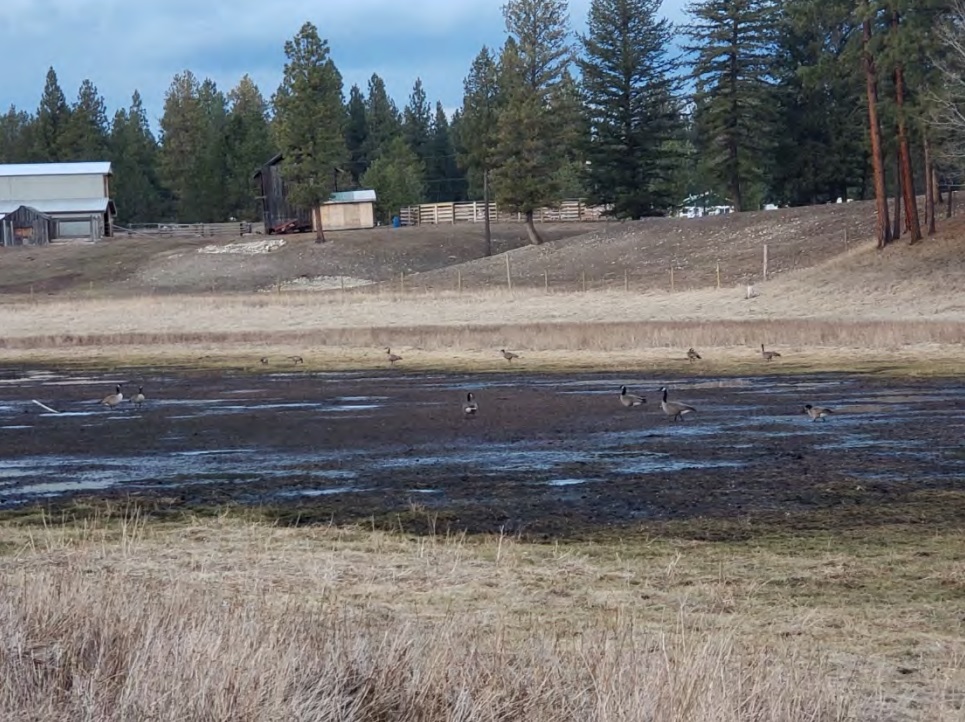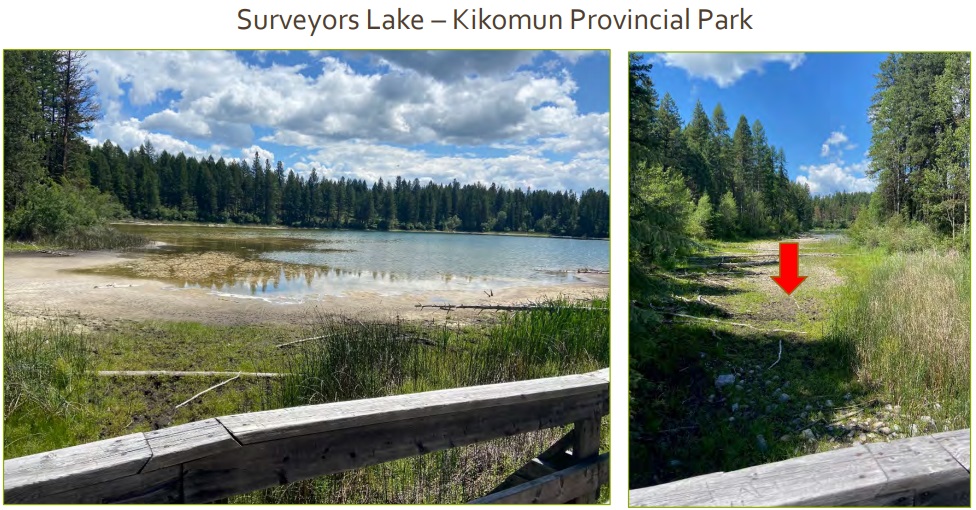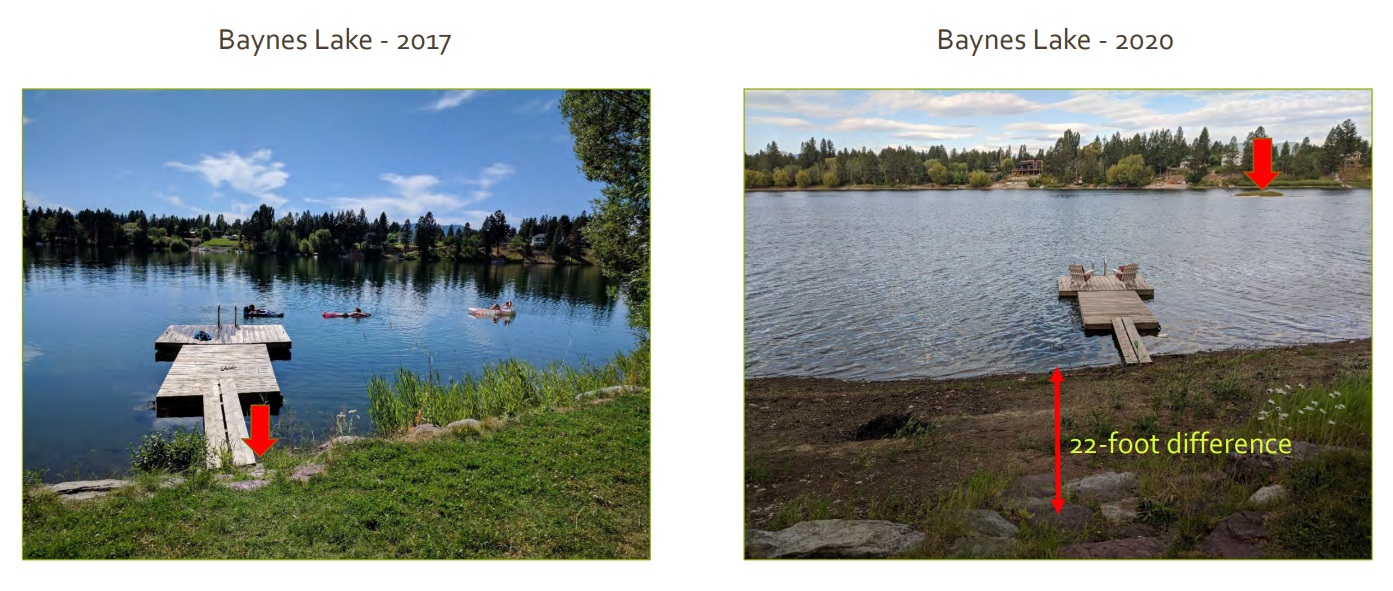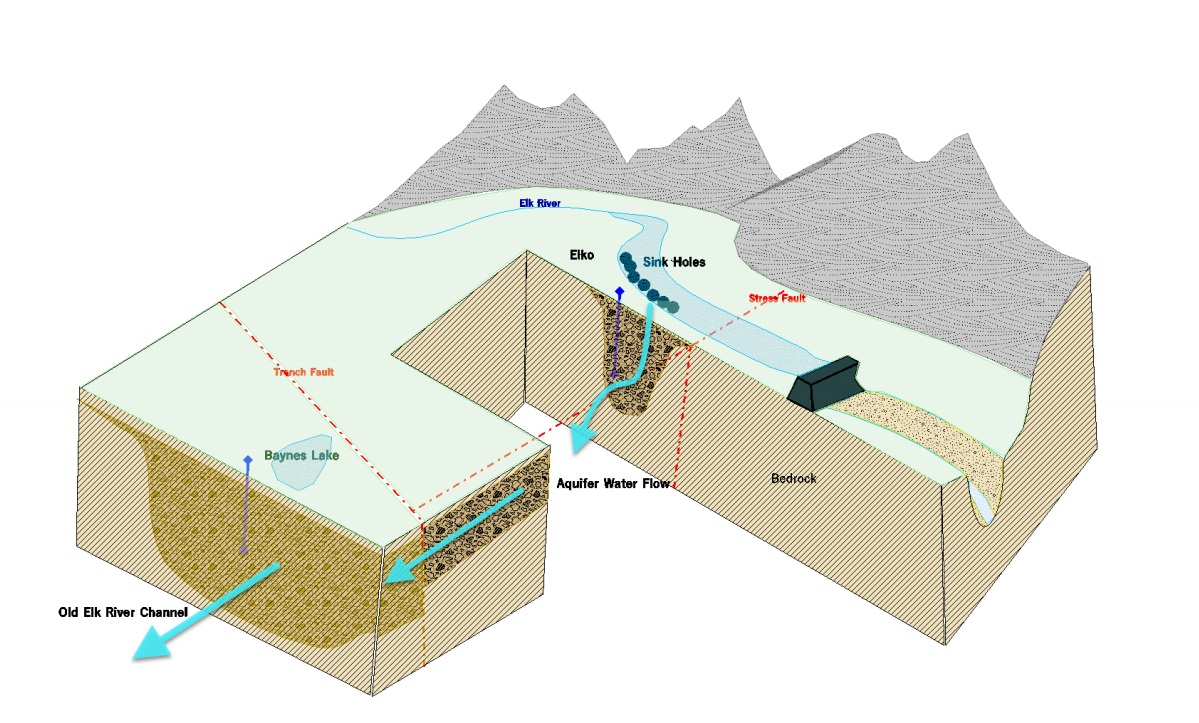A state of local emergency may have to be declared if the RDEK doesn’t get a quick solution to the South Country’s ongoing water crisis, where local wells and ponds are drying up.
At the RDEK’s (Regional District of East Kootenay) most recent Board of Directors, Rob Gay was given conditional approval to issue a state of local emergency only if it is deemed necessary to expedite approvals needed to fix the water supply crisis in the South Country.
PREVIOUS: Locals and RDEK calling for immediate action to “water supply crisis” in the South Country (Aug. 11, 2020)
Properties in Baynes Lake area continue to struggle with decreasing water supply as a local aquifer and sinkhole upstream of the Elko Dam is running dry and not supplying water to the community watershed, needed to fill wells, ponds, and other water bodies.
“The regional district reached out to Water Stewardship to get a permit to go into the back channel to scalp that out, to wet those channels, to put water back into the South Country. We’re hoping for action to get a permit, to go in beside the river to open the channel up,” Stan Doehle told MyEastKootenayNow.com, RDEK Electoral Area B Director. “If we don’t get any action out of that, we’re going to have to declare a local state of emergency because we cannot wait until next – it will be next probably July before they could get a permit to work in there.”

Reviewed and identified by geologists and following chemical water testing, Doehle said sculpting out a back channel upstream of the decommissioned Elko Dam would provide enough water back into the aquifer and sinkhole to supply the South Country with water. Doehle said they are hoping to hear back from Water Stewardship on their proposed permit as early as this week so they can immediately begin surveying the channel and cost out the project.
“The back channel would rectify that problem year-round. There would be water in there flowing into that aquifer. There’s about 20,000 gallons a minute that flows into that aquifer from the sinkhole and it would be great to get away from the reliance on the dam running at 917 metres and it would be a permanent solution.”
About two weeks ago, Doehle said they had a meeting with the now-former B.C. Minister of Mines, Energy, and Petroleum Resources, Bruce Ralston. The ministry was starting to look at the file but then the government was shut down due to the provincial election. The delays are now putting a lot of pressure for something to be down about the “water supply crisis” in the localized region.
“It’s a major emergency on the local wells,” said Doehle, noting the issue affects Canfor Industries, the Elko Sawmill, all the way to the Dairy Bar and into Baynes Lake with 14 wells that are having recharge issues.
“If they have to go through till next summer there they are going to be out of water. Not only that, the local environment around here, the kettle ponds are dried up, Baynes Lake is in a disastrous state, and all the lakes and ponds in Kikomun Creek Provincial Park are in a major state, it’s what we call a disaster, an environmental disaster sitting there.”

The temporary permit given by Water Stewardship was identified as the quickest and most effective way to re-establish the water supply and avert the water supply crisis.
Back when the Elko Dam was constructed, the path of the Elk River was historically changed and deprived the South Country’s aquifer unless the dam maintained an elevation of 917 metres. Since the dam was decommissioned in 2016 due to its age and cost of renovation, the South Country has witnessed receding water levels and record lows throughout Baynes Lake and Elko.
If the permit is not issued by Water Stewardship for the RDEK, it is fully expected that a local state of emergency will be declared to bring further attention to the crisis and advance government work to permanently solve the water supply issues in the area.





